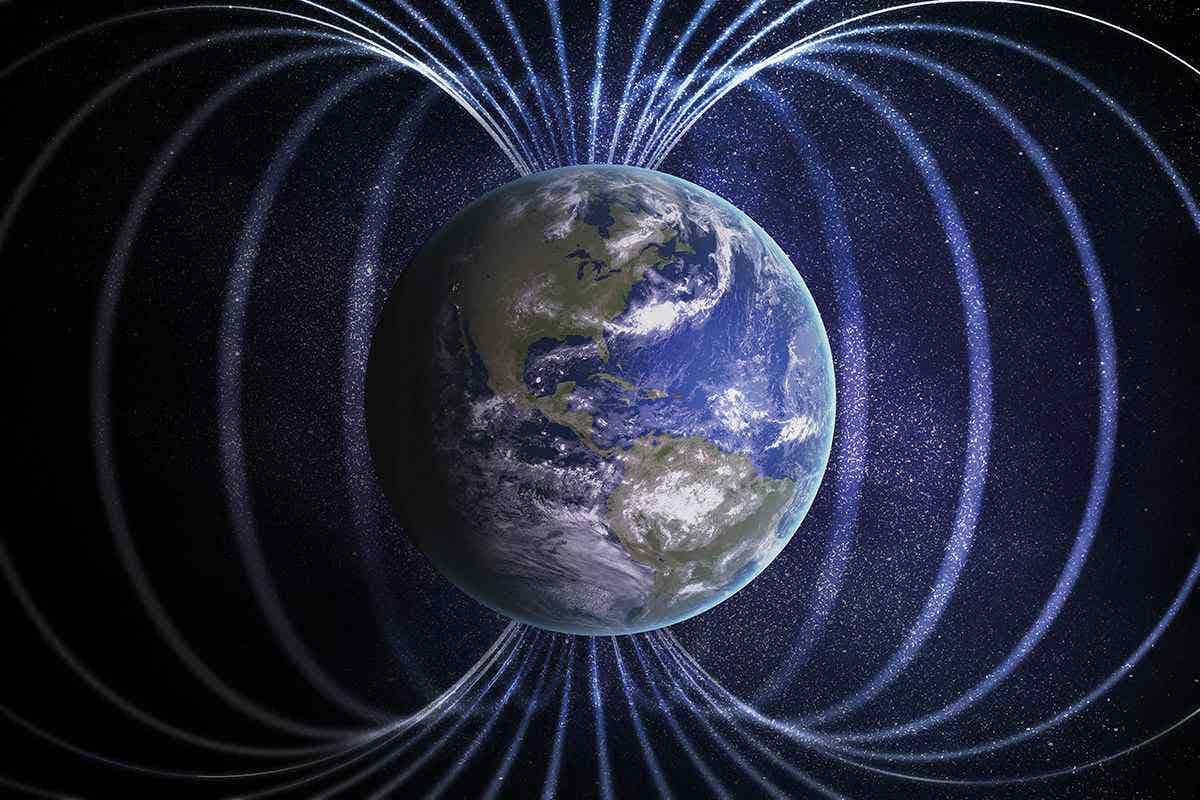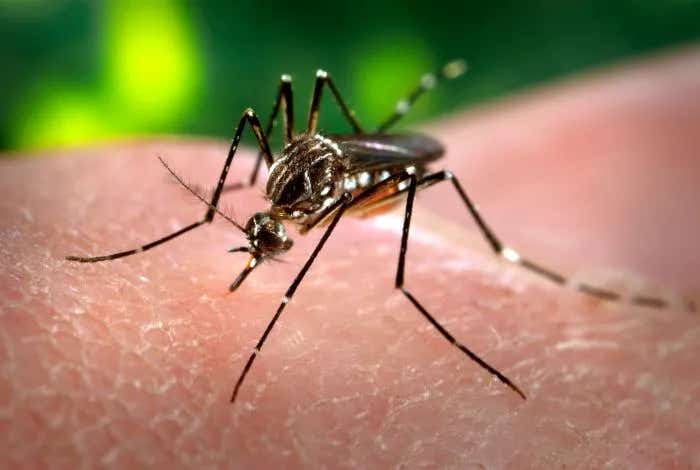Scientists reveal the surprising genetic cause of depression, study finds
Ancient humans mating with a now-extinct subspecies from Asia could be the reason we suffer with depression, a new study claims

[Nov. 6, 2023: Staff Writer, The Brighter Side of News]
The research has uncovered one of the most influential genetic adaptations in human evolution—an ancient Denisovan variant. (CREDIT: Creative Commons)
Imagine stepping into a time machine, whisking you back tens of thousands of years to a period when the early modern humans embarked on a journey that would change the course of history. This was the Out-of-Africa exodus, an epic migration that led to the first encounters between our ancestors and the enigmatic Denisovans. These meetings were not just passing interactions; they were crucibles of genetic exchange whose echoes are felt in our DNA even today.
The research has uncovered one of the most influential genetic adaptations in human evolution—an ancient Denisovan variant that sculpted our ancestors' ability to withstand the cold and left an indelible mark on our modern genome.
The intricate tale of human evolution is being pieced together by dedicated scientists like Elena Bosch and Rubén Vicente, leading researchers from the Institute of Evolutionary Biology (IBE) and the UPF Department of Medicine and Life Sciences (MELIS). Their teams have shone a light on one of the most pervasive genetic footprints of Denisovan ancestry in modern humans—a variant that has not only given us insight into how our ancestors adapted to the frigid climates they encountered but also hints at a connection to mental health challenges faced by many today.
A woman walks beside a human evolution exhibit at the Calouste Gulbenkian Foundation. (CREDIT: Jose Manuel Ribeiro)
Ana Roca-Umbert, co-first author of the groundbreaking study, encapsulates the discovery with precision: “Through genomic analysis, we noted that the genetic variant observed came from our interbreeding with archaic humans in the past, possibly the Denisovans”. This statement underscores the mosaic nature of our genome, a patchwork of ancient histories and survival strategies.
Who were the Denisovans?
The Denisovans, alongside the Neanderthals, are considered the nearest extinct kin to contemporary humans. The existence of Denisovans was only revealed in 2010 by the scientific community, leaving vast swathes of their history shrouded in mystery. Evidence from fossils and DNA analysis, however, indicates that Denisovans thrived in a diverse array of environments, spanning from the chilly terrains of Siberia and Tibet to the tropical forests of Southeast Asia.
This artist's reconstruction, based on anatomical estimates from a new method, shows the face of a Denisovan girl from Siberia in Russia. (CREDIT: MAAYAN HAREL)
The initial Denisovan fossil remains were unearthed by Russian researchers in the summer of 2008 within the confines of the Denisova Cave, located in the Altai Mountains of southern Siberia, as reported by the journal Nature. The cave's namesake is a hermit named Denis who resided there until the 18th century, bestowing upon the cave its present-day Russian moniker, which translates to "Denis's cave," according to the Leakey Foundation.
The Science Behind the Cold Adaptation
The adaptive variant lies within the SLC30A9 gene, a sequence of DNA that modern humans share with the Denisovans. Contrary to the initial belief, this genetic sequence is not part of our Neanderthal heritage. Jorge Garcia-Calleja, also a co-first author, elucidates the significance: “Apparently, the change was beneficial and proved a selective advantage for humans. As a consequence, this variation was selected and has reached current populations”.
Geographic distribution of the identified substitution in the SLC30A9 gene in current human populations and possible scenarios of Denisovan introgression. Ancestral SLC30A9 corresponds to the gene version prior to the interbreeding between Denisovans and Homo sapiens. Variant SLC30A9 refers to the version shared with Denisovans. (CREDIT: Jorge Garcia and Elena Bosch)
As the research unfolded, Bosch's team came to understand that this mutation had profound implications at the cellular level, particularly concerning the transport of zinc within the cell. The realization prompted Bosch to collaborate with Vicente's group, which specializes in studying intracellular zinc movement—a fundamental element for cellular communication and overall health.
Zinc's Critical Role in Adapting to the Cold
The human body is a complex network of biochemical reactions, all finely tuned to maintain a delicate balance. Zinc plays a vital role in this equilibrium, acting as a cellular messenger essential for growth, neurological function, and immune responses.
Related Stories
Rubén Vicente, drawn into the investigation by the unique amino acid change in the zinc transporter, remarks on the collaborative venture: “Elena contacted me because her team had observed a change in an amino acid in a zinc transporter, which was very different between the populations of Africa and Asia today. From there, we started asking ourselves questions and looking for answers”.
Vicente's team tackled the formidable task of deciphering how the Denisovan variant influenced zinc balance within cells, altering metabolism, and potentially offering an advantage in cold environments. “The observed phenotype leads us to think of a possible adaptation to the cold”, Vicente asserts, drawing a direct line from genetic mutation to physiological resilience.
Implications for Mental Health
The narrative of human evolution is one of survival, but it also contains chapters of vulnerability. The Denisovan zinc transporter variant, while beneficial in some respects, seems to have a darker side associated with an increased risk of psychiatric conditions such as depression, schizophrenia, and autism spectrum disorder, among others.
Demonstration that a portion of the zinc transporter ZnT9 is encoded by the SLC30A9 gene, which is located in the mitochondrion. Super-resolution STED microscopy image of HEZ293 cells transfected with the ZnT9 zinc transporter (in green). In magenta, the mitochondrial protein TOM 20, and in white, the mitochondrial localization. (CREDIT: Rubén Vicente)
The research teams emphasize the importance of this finding, suggesting that understanding this genetic legacy could offer new insights into these complex disorders. “In the future, expanding this study to animal models could shed light on this predisposition to suffering from mental illnesses”, Vicente notes, highlighting a path for future research endeavors.
A Genetic Legacy Spanning Continents
The echoes of ancient crossbreeding with the Denisovans are not confined to a single corner of the globe. This genetic variant, born out of necessity in the face of harsh climates, has traversed continents, permeating European, Asian, and native American populations. Yet, it remains a rarity among African populations, a poignant reminder of the diverse evolutionary paths that different human groups have traversed.
Elena Bosch reflects on the significance of their findings, which reveal the broadest geographical scope of any known Denisovan genetic adaptation. “For example, a variant in the EPAS1 gene inherited from the Denisovans allows adapting to life at altitude, but is found only in Tibetans. However, in our case, the impact extends to all populations outside Africa”, she concludes.
The unraveling of the human genetic code continues to reveal astonishing narratives of our past. The Denisovan variant discovery offers a window into how our ancestors adapted to new and challenging environments and how these ancient genetic events continue to influence our health today. The collaboration between the teams of Bosch and Vicente demonstrates the power of interdisciplinary research, uniting evolutionary biology and molecular physiology to decode the stories written in our DNA.
As we forge ahead into the future, the lessons of our genetic past will undoubtedly illuminate the path forward, offering potential breakthroughs in understanding and treating mental health conditions, as well as deeper insights into the resilience and adaptability of the human species. The Denisovan legacy within us is a testament to the interconnectedness of our history and our ongoing evolution as a species.
Note: Materials provided above by The Brighter Side of News. Content may be edited for style and length.
Like these kind of feel good stories? Get the Brighter Side of News' newsletter.



